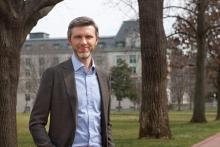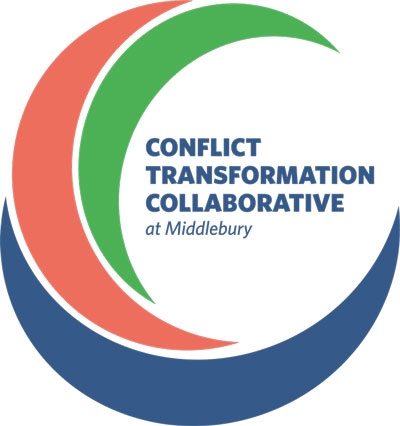
Migration between Justice and Democracy: Rethinking Border Openness
Nathan Pippenger, Associate Professor of Political Science, US Naval Academy
Franklin Environmental Center, The Orchard-Hillcrest 103
Open to the Public
The Kathryn Wasserman Davis Collaborative in Conflict Transformation (‘Conflict Transformation Collaborative’) is an integrated hub focused on engaging faculty, staff, students, and community partners around conflict and change in diverse contexts, cultures, and communities.

In collaboration with internal and external partners, we seek to foster individuals’ and groups’ knowledge about conflict vis a vis change; skills to engage productively with conflict and change; and dispositions that promote meaningful relationships and ethical action across communities. We explore the interconnectedness of conflict and change at every scale (macro, meso, micro, and me-cro). And we center our practice on both proactive and responsive approaches, selected with keen sensitivity to individual, interpersonal, institutional, and global dynamics.
The Collaborative includes high school, undergraduate, and graduate education; faculty and staff professional development; pure, applied, and community-engaged research; and university-community partnerships related to a range of pressing social issues. We engage in this work through cohorts, communities of practice, interdisciplinary engagement, and experiential learning. Core to our collective approach is reflective practice, iteration, and collaboration.
Each pillar is focused on a specific domain, integrating leadership development, cohort-based experiences, communities of practice, and university-community partnerships for impact that is crafted within particular contexts and areas of interest.
Equipping students with civic skills to address the conflicts that arise in a diverse society.
Exploring self-awareness, restorative practices, dialogue, intercultural communication, and mediation.
Teaching how community structures and social systems contribute to conflict and ways to resolve it.
Researching effective solutions through original research and constructive debate within various professions.
Understanding the diverse forms of conflict in cultural, political, and geographic settings.
Expertise of scholars, analysts, and practitioners who provide invaluable insight into conflict analysis and transformation.
Questions about the CT Collaborative? Here are answers!

Nathan Pippenger, Associate Professor of Political Science, US Naval Academy
Franklin Environmental Center, The Orchard-Hillcrest 103
Open to the Public
In an essay in the Chronicle of Higher Education, former undersecretary of education James Kvaal called for colleges to defend their public value while also building environments that encourage respectful disagreement.
| by Sierra Abukins
At the midpoint of its multiyear conflict transformation collaborative initiative, Middlebury is looking back and looking forward to the next phase of the effort.
The Conflict Transformation Collaborative at Middlebury College is partnering with nuwave Equity Corporation to support its efforts to bring social innovation to the workforce.